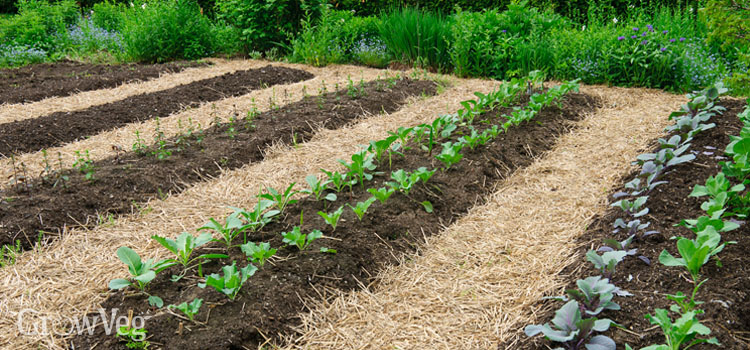Humic Soil Conditioner: The Ultimate Guide To Improving Your Garden's Health
Humic Soil Conditioner: The Ultimate Guide to Improving Your Garden's Health
Introduction
Healthy soil is essential for healthy plants. Humic soil conditioner is a natural substance that can help improve the health of your garden soil in a number of ways. It can increase water retention, improve drainage, aerate the soil, and provide essential nutrients to plants.
In this blog post, we will discuss the benefits of humic soil conditioner and how to use it to improve your garden's health. We will also provide some tips on how to choose the right humic soil conditioner for your needs.
What is Humic Soil Conditioner?
Humic soil conditioner is a type of organic matter that is made up of decomposed plant and animal materials. It is a complex mixture of molecules that includes humic acid, fulvic acid, and humin.
Humic acid is the most abundant form of humic matter in soil. It is a dark brown or black substance that is soluble in water. Fulvic acid is a lighter brown substance that is also soluble in water. Humin is the least soluble form of humic matter. It is a dark brown or black substance that is not soluble in water.
Benefits of Humic Soil Conditioner
Humic soil conditioner has a number of benefits for garden soil. Some of the most important benefits include:
- Increases water retention: Humic acid can hold up to 100 times its weight in water. This helps to keep soil moist, even during dry periods.
- Improves drainage: Humic acid can help to break up clay soils and improve drainage. This helps to prevent waterlogging and root rot.
- Aerates the soil: Humic acid can help to create small air pockets in soil. This helps to improve oxygen and nutrient availability to plant roots.
- Provides essential nutrients: Humic acid contains a number of essential nutrients for plant growth, including nitrogen, phosphorus, potassium, and calcium.
- Promotes plant growth: Humic acid can help to promote plant growth by improving the overall health of the soil. This can lead to stronger, healthier plants with increased yields.
How to Use Humic Soil Conditioner
Humic soil conditioner can be used in a variety of ways to improve garden soil. Some of the most common methods include:
- Mixing it into the soil: Humic soil conditioner can be mixed into the soil at the time of planting or before tilling.
- Applying it as a foliar spray: Humic soil conditioner can be diluted in water and applied to plant leaves as a foliar spray. This helps to improve plant health and resistance to pests and diseases.
- Adding it to compost: Humic soil conditioner can be added to compost to help it break down faster and produce more nutrient-rich compost.
How to Choose Humic Soil Conditioner
When choosing humic soil conditioner, there are a few things to keep in mind:
- The source: Humic soil conditioner can be derived from a variety of sources, including coal, leonardite, and peat. The source of humic soil conditioner can affect its properties and effectiveness.
- The quality: The quality of humic soil conditioner can vary depending on the manufacturing process. It is important to choose a humic soil conditioner that is high quality and free of contaminants.
- The concentration: The concentration of humic acid in humic soil conditioner can vary. It is important to choose a humic soil conditioner that has a high concentration of humic acid.
Conclusion
Humic soil conditioner is a natural substance that can offer a number of benefits for garden soil. It can help to improve water retention, drainage, aeration, and nutrient availability. Humic soil conditioner can also help to promote plant growth and resistance to pests and diseases.
If you are looking for a way to improve the health of your garden soil, humic soil conditioner is a great option. With so many benefits to offer, humic soil conditioner can help you to grow healthier, more productive plants.
If you're looking for a natural way to improve your soil, humic soil conditioner is a great option. Humic acid is a type of organic matter that occurs naturally in soil, and it has a number of benefits for plants. It can help to improve water retention, increase nutrient absorption, and boost plant growth.
If you're interested in learning more about humic soil conditioner, I recommend visiting Garden Wiki. This website has a wealth of information about humic acid, including its benefits for plants, how to use it, and where to buy it.
Image of humic soil conditioner
5 different images of "humic soil conditioner" from Pinterest:
- A bag of humic soil conditioner with a scoop inside. The bag is labeled "Humic Acid Soil Conditioner" and the scoop is labeled "1 TBSP".

- A bottle of humic soil conditioner with a dropper. The bottle is labeled "Humic Acid Soil Conditioner" and the dropper is labeled "1 ML".

- A gallon jug of humic soil conditioner. The jug is labeled "Humic Acid Soil Conditioner" and the jug has a pouring spout.

- A shovelful of humic soil conditioner being added to a potted plant. The humic soil conditioner is a dark brown powder.

- A row of vegetable plants in a garden with humic soil conditioner sprinkled around the base of each plant. The humic soil conditioner is a dark brown powder that has been watered in.

Post a Comment for "Humic Soil Conditioner: The Ultimate Guide To Improving Your Garden's Health"